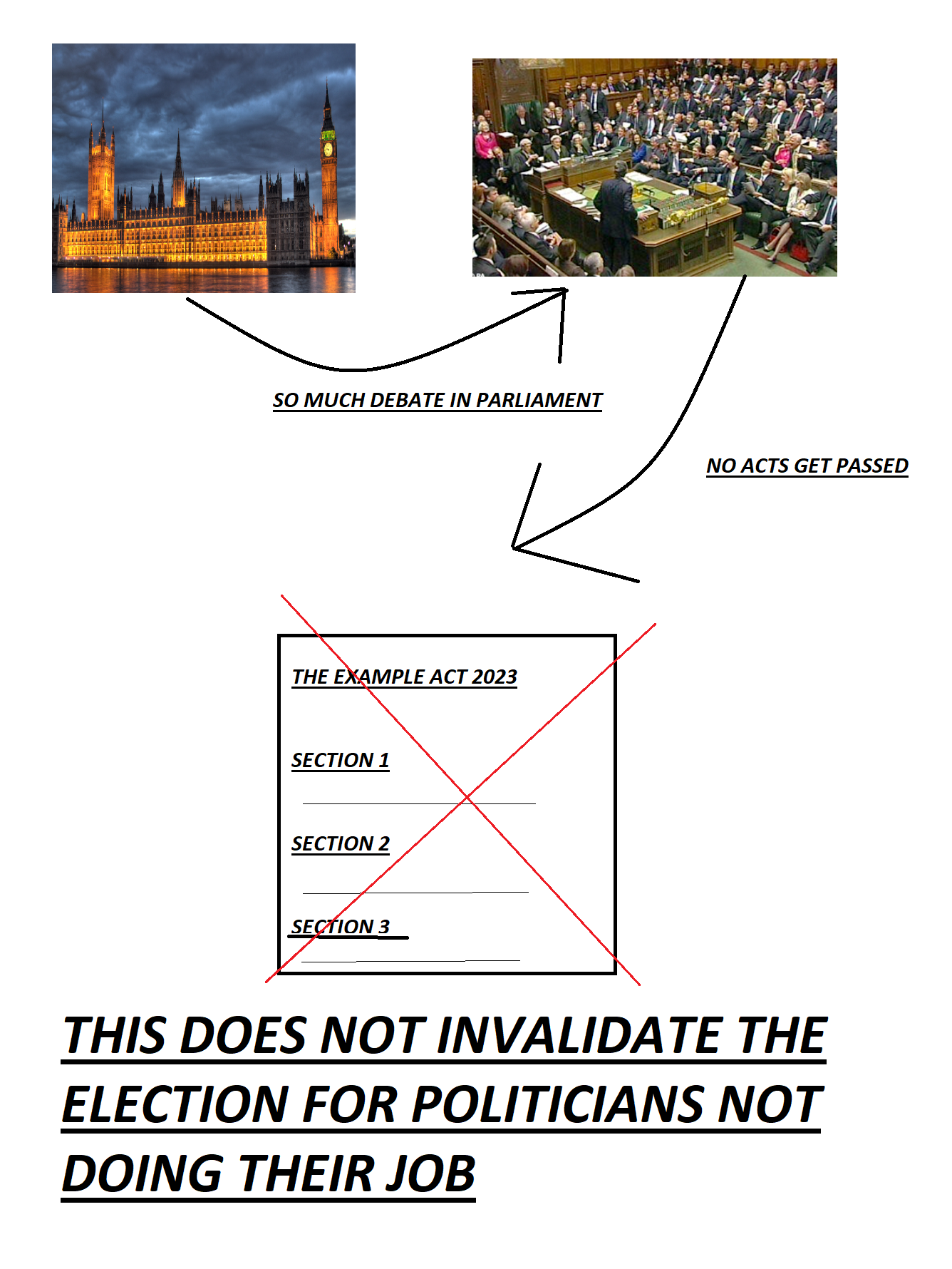Robinson v Secretary of State for Northern Ireland, 2002 UKHL 32
Citation:Robinson v Secretary of State for Northern Ireland, 2002 UKHL 32
Rule of thumb 1:If a Government & Parliament is not functioning after an election as they cannot agree on anything in the law-making process, does this invalidate the election? No, they can technically all sit there for the full length of term disagreeing about everything & getting nothing done.
Rule of thumb 2:If a public body is created by statute, does this body have prerogative/discretion? No, everything the body does must be derived from statute.
Background facts:
The basic facts of this case were that it took a long time for Ministers etc to be voted into place after an election. It was argued that this made the results of the election void.
Parties argued:
It was argued that this made the results of the election void.
Judgment:
The Court held that this did not void the election and this had to be interpreted in accordance with British constitutional rights and human rights, which required a flexible approach. The Court therefore held that the results of the election were not void due to the increases in time in selecting Ministers. In short, if there are MP’s voted into Parliament and there is difficult getting Government to function with the appointment of Ministers & the passing of legislation/regulations, there is still no obligation on the Government to dissolve the Parliament and have another election – they are essentially entitled to see out their full term and get nothing done if they so wish as a general rule. This case also confirmed that the European Convention of Human Rights has in effect become a fully written and ratified constitution for the United Kingdom.
The Court further held that the Government was not a body created by statute, so they had prerogative, and using this prerogative they could do whatever they saw fit.

Ratio-decidendi:
’11-12. The 1998 Act does not set out all the constitutional provisions applicable to Northern Ireland, but it is in effect a constitution. ...It would no doubt be possible, in theory at least, to devise a constitution in which all political contingencies would be the subject of predetermined mechanistic rules to be applied as and when the particular contingency arose. But such an approach would not be consistent with ordinary constitutional practice in Britain. There are of course certain fixed rules, such as those governing the maximum duration of parliaments or the period for which the House of Lords may delay the passage of legislation. But matters of potentially great importance are left to the judgment either of political leaders (whether and when to seek a dissolution, for instance) or, even if to a diminished extent, of the Crown (whether to grant a dissolution). Where constitutional arrangements retain scope for the exercise of political judgement they permit a flexible response to differing and unpredictable events in a way which the application of strict rules would preclude’, Lord Bingham
‘... A body created by statute... has no powers other than those given to it by statute...’ Lord Hutton.
Warning: This is not professional legal advice. This is not professional legal education advice. Please obtain professional guidance before embarking on any legal course of action. This is just an interpretation of a Judgment by persons of legal insight & varying levels of legal specialism, experience & expertise. Please read the Judgment yourself and form your own interpretation of it with professional assistance.

